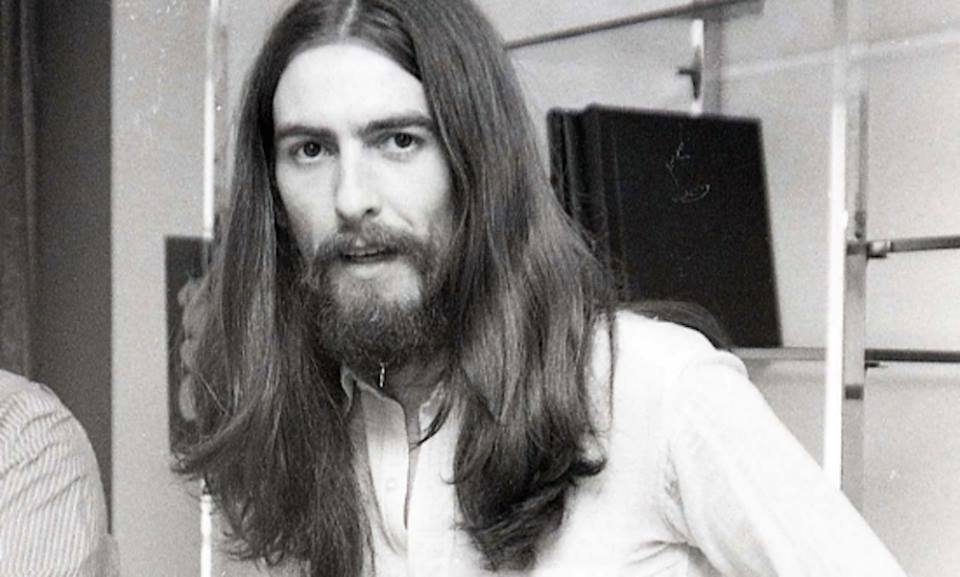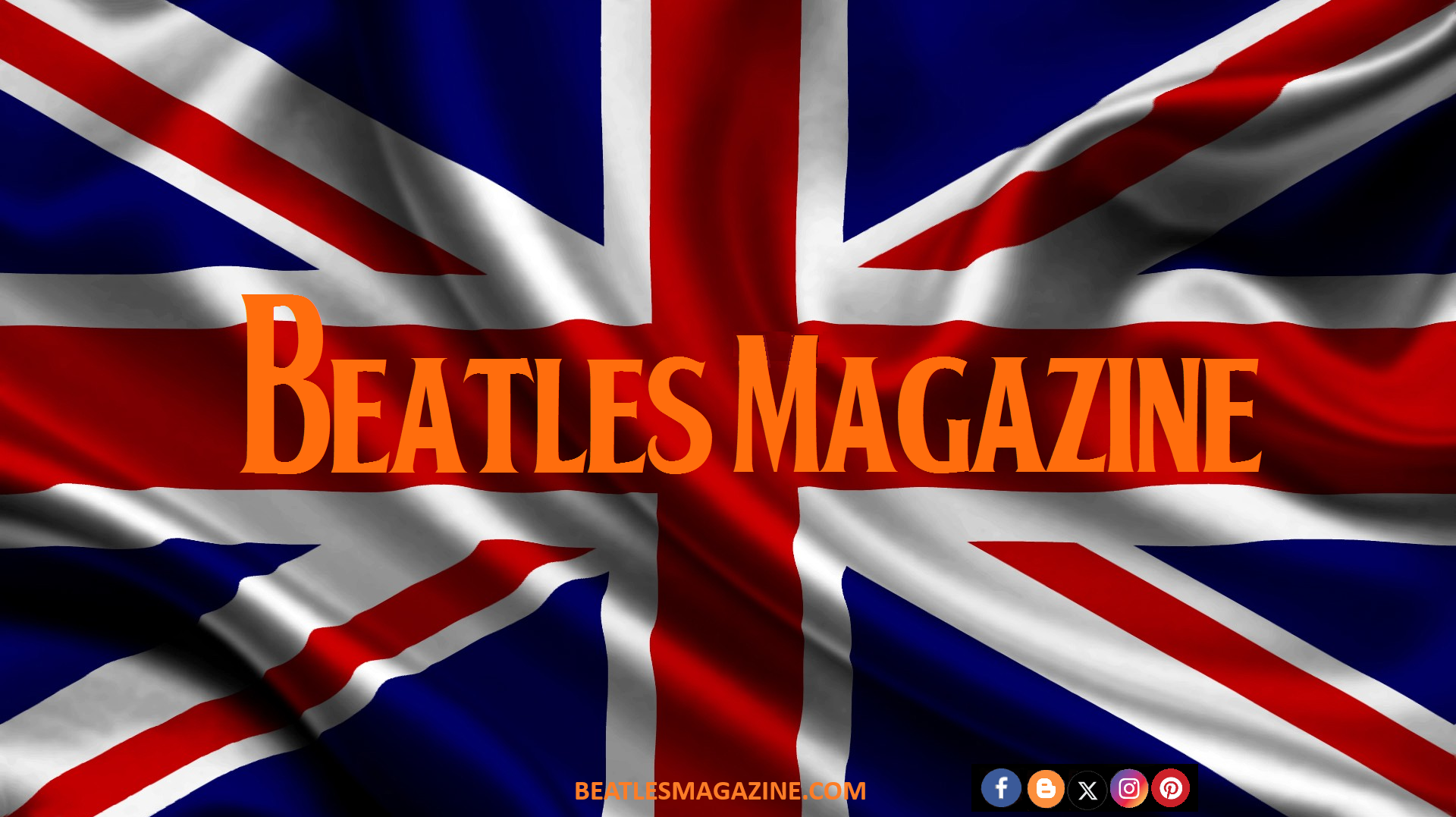“My Sweet Lord” , released in November 1970 on his triple album All Things Must Pass. It was also released as a single, George Harrison‘s first as a solo artist, and topped charts worldwide; it was the biggest-selling single of 1971 in the UK. In America and Britain, the song was the first number-one single by an ex-Beatle. Harrison originally gave the song to his fellow Apple Records artist Billy Preston to record; this version, which Harrison co-produced, appeared on Preston’s Encouraging Words album in September 1970.
George wrote “My Sweet Lord” in praise of the Hindu god Krishna, while intending the lyrics as a call to abandon religious sectarianism through his blending of the Hebrew word hallelujah with chants of “Hare Krishna” and Vedic prayer. The recording features producer Phil Spector‘s Wall of Sound treatment and heralded the arrival of Harrison’s slide guitar technique, which one biographer described as “musically as distinctive a signature as the mark of Zorro”. Preston, Ringo Starr, Eric Clapton, and the group Badfinger are among the other musicians on the recording.
Later in the 1970s, “My Sweet Lord” was at the centre of a heavily publicised copyright infringement suit due to its similarity to the Ronnie Mack song “He’s So Fine”, a 1963 hit for the New York girl group the Chiffons. In 1976, Harrison was found to have subconsciously plagiarised the song, a verdict that had repercussions throughout the music industry. He claimed to have used the out-of-copyright “Oh Happy Day”, a Christian hymn, as his inspiration for the melody.
Harrison performed “My Sweet Lord” at the Concert for Bangladesh in August 1971, and it remains the most popular composition from his post-Beatles career. He reworked it as “My Sweet Lord (2000)” for inclusion as a bonus track on the 30th anniversary reissue of All Things Must Pass. Many artists have covered the song, including Andy Williams, Peggy Lee, Edwin Starr, Johnny Mathis, Nina Simone, Julio Iglesias, Richie Havens, Megadeth, Boy George, Elton John, Jim James, Bonnie Bramlett and Elliott Smith. “My Sweet Lord” is ranked 460th on Rolling Stone magazine’s list of “the 500 Greatest Songs of All Time”.[4] The song reached number one in Britain for a second time when rereleased in January 2002, two months after Harrison’s death.

George Harrison began writing “My Sweet Lord” in December 1969, when he, Billy Preston and Eric Clapton were in Copenhagen, Denmark,as guest artists on Delaney & Bonnie’s European tour. By this time, Harrison had already written the gospel-influenced “Hear Me Lord” and “Gopala Krishna”, and (with Preston) the African-American spiritual “Sing One for the Lord”. He had also produced two religious-themed hit singles on the Beatles’ Apple record label: Preston’s “That’s the Way God Planned It” and Radha Krishna Temple (London)’s “Hare Krishna Mantra”. The latter was a musical adaptation of the 5000-year-old Vaishnava Hindu mantra, performed by members of the International Society for Krishna Consciousness (ISKCON), colloquially known as “the Hare Krishna movement”. Harrison now wanted to fuse the messages of the Christian and Gaudiya Vaishnava faiths into what musical biographer Simon Leng terms “gospel incantation with a Vedic chant”.
The Copenhagen stopover marked the end of the Delaney & Bonnie tour, with a three-night residency at the Falkoner Theatre on 10–12 December. According to Harrison’s 1976 court testimony, “My Sweet Lord” was conceived while the band members were attending a backstage press conference and he had ducked out to an upstairs room at the theatre. Harrison recalled vamping chords on guitar and alternating between sung phrases of “hallelujah” and “Hare Krishna“.He later took the idea to the others, and the chorus vocals were developed further.Band leader Delaney Bramlett‘s more recent version of events is that the idea originated from Harrison asking him how to go about writing a genuine gospel song, and that Bramlett demonstrated by scat singing the words “Oh my Lord” while wife Bonnie and singer Rita Coolidge added gospel “hallelujah“s in reply.British music journalist John Harris has questioned the accuracy of Bramlett’s account, however, comparing it to a fisherman’s “It was this big”-type bragging story.
Using as his inspiration the Edwin Hawkins Singers’ rendition of an eighteenth-century Christian hymn, “Oh Happy Day”,Harrison continued working on the theme.He completed the song, with some help from Preston, once they had returned to London.
The following musicians are believed to have played on Harrison’s original version of “My Sweet Lord”:
- George Harrison – vocals, acoustic guitar, slide guitars, backing vocals
- Eric Clapton – acoustic guitar
- Pete Ham – acoustic guitar
- Tom Evans – acoustic guitar
- Joey Molland – acoustic guitar
- Billy Preston – piano
- Gary Wright – electric piano
- Klaus Voormann – bass
- Ringo Starr – drums, percussion
- Jim Gordon – drums, percussion
- Mike Gibbins – tambourine
- John Barham – string and woodwind arrangements
- Bobby Whitlock – harmonium
- uncredited – zithers

